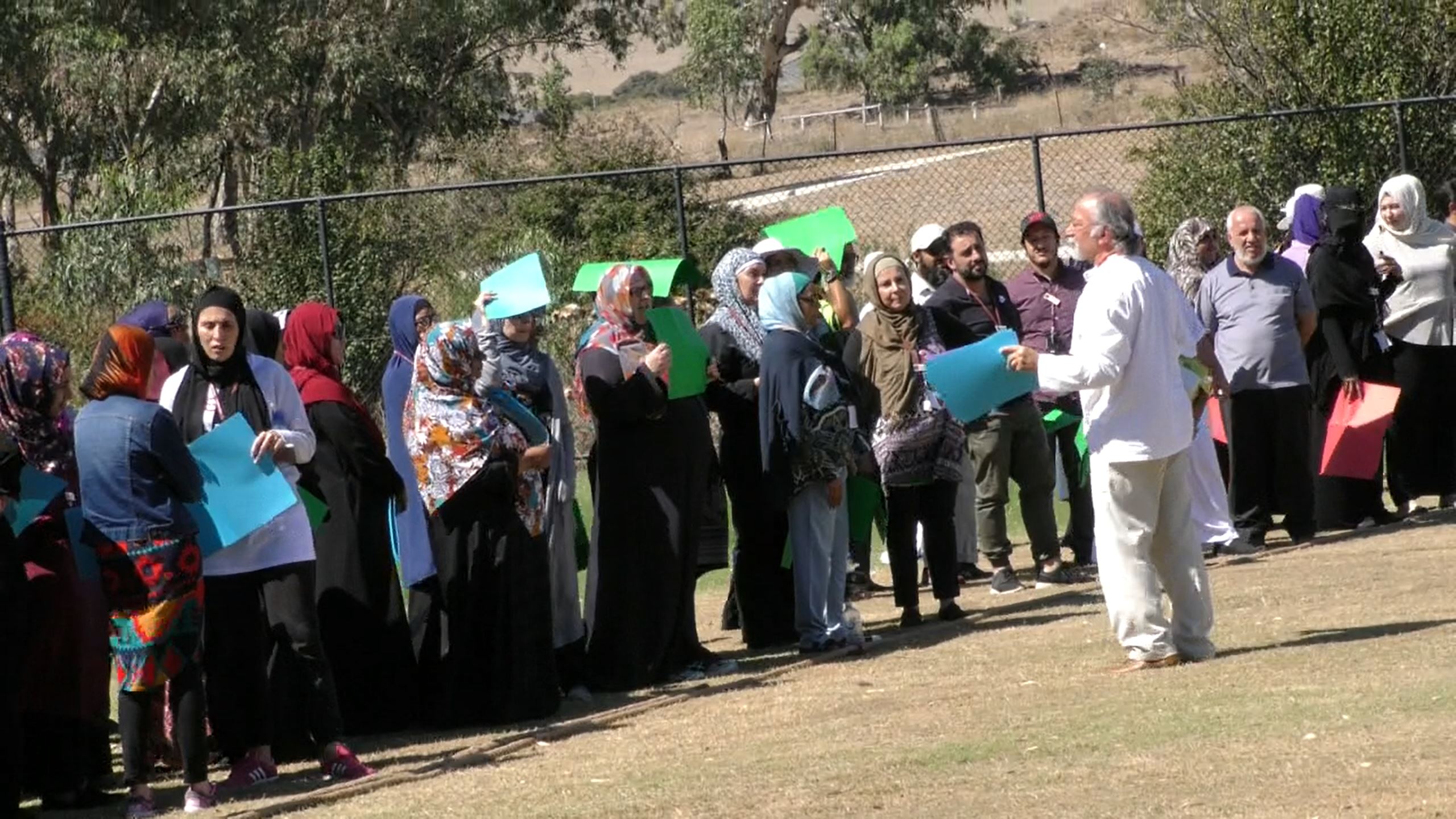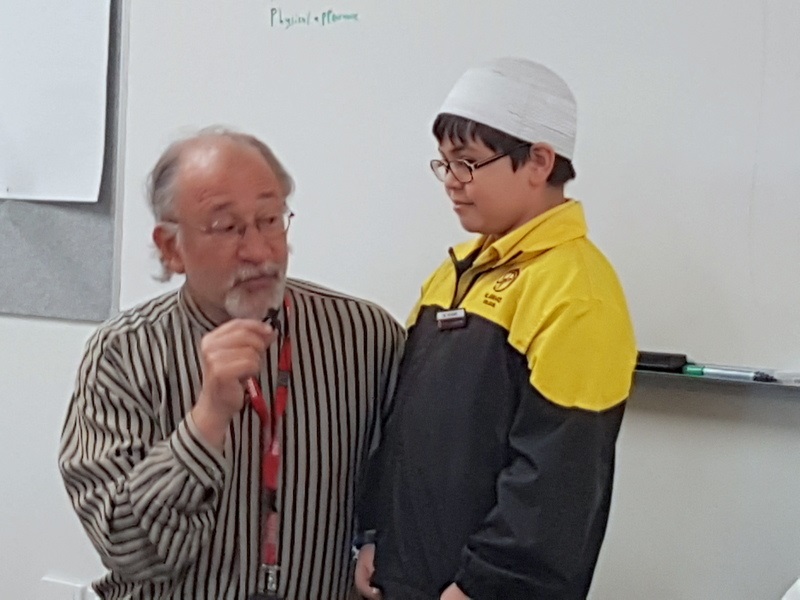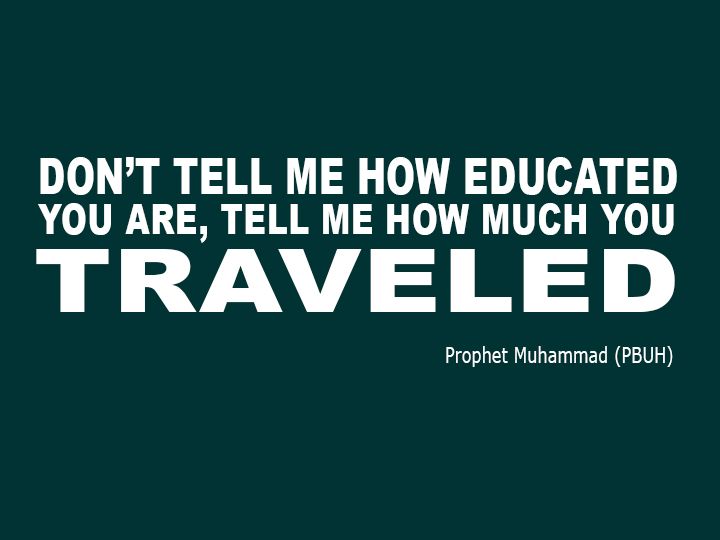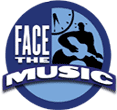A Thousand Muslims and a Jew

At last count, there were 7.7 billion people on planet Earth. The odds of any two people meeting, I believe, is something like 7.7 billion to one. And the odds of any two of those 7.7 billion people deciding to collaborate on a complicated, culture-changing project -- especially if one of them is an Australian Muslim born in Pakistan and the other is an American Jew born in New York -- is in the slim-to none-zone. But that's exactly what happened to me three years ago, a collaboration that took seven years to manifest, seven being a classic span of years noted 700 times in the Bible and God knows how many times in the Quran.
Like any story, the one I am about to tell has a very juicy back story which, technically speaking, is part of the story, depending, of course, on how far back I decide to rewind the karmic tape -- the seemingly invisible, below-the-surface prelude to what I would only later discover to be one of the most fascinating collaborations of my life.
Ready? Here goes:
Seven years ago, Fazeel Arain, the Co-Founder and Principal of Al Siraat College, a K-12 Australian School in the Islamic tradition, located on the outskirts of Melbourne, found his way to my Heart of Innovation blog. Unbeknownst to me, he had become a big fan of my writing, point of view, and sense of humor. After three years of tuning in to my various articles, stories, videos, tools, techniques, and quotes, Fazeel decided to contact me, curious to know if my organization might be available to be of service to his.

While I was tickled to be contacted by the very forthright Fazeel (a name, in Urdu, that translates as "knowledgeable"), I was also skeptical that anything much would come of it -- not because I didn't want anything to come of it, but because, historically speaking, educational institutions had proven to be highly unlikely clients of mine. Their budgets were low. Their risk aversion was high. And when you considered the fact that Fazeel's K-12 school was 10,000 miles away and was Islamic, to boot, the odds of anything real coming of this seemed microscopically small to me. So when, after our first conversation, Fazeel asked me to submit a proposal, my first reaction was to raise my metaphorical eyebrows and think "no way."
Having trained myself, however, for the past 28 years, to go beyond the knee-jerk, nay saying negativity that often accompanies the appearance of a seemingly long-shot possibility, I made my way over to my favorite cafe, ordered a cappuccino, and started to noodle. Four hours later, proposal done, I emailed it, fingers crossed, to the aforementioned Mr. Fazeel -- a man I had come to learn was a former Oracle IT consultant, father of five, and the husband of a brilliant woman named Rahat, a former civil engineer.
The plot thickens.

Fazeel loved absolutely everything about my proposal except the fee, which, he explained, was "too rich for his blood" or whatever the equivalent Australian/Islamic phrase was for "Ouch, our budget just can't handle it." Unwilling to discount my already discounted fees any more, it was obvious we had come to an impasse. And so Fazeel went his way and I went mine.
Two years passed.
Then, very much out of the blue, in the midst of attempting to guide Al Siraat through yet another "change process," Fazeel contacted me again. The more I listened to him wax on about the school's many challenges, the dizzier I got. Although I was quite familiar with the phenomenon of "change management" (a second cousin to getting your teenage daughter to clean up her room), it was not, shall we say, my cup of tea. Three decades of consulting with a wide variety of forward thinking organizations had taught me that "change management" was often a euphemism for "How would you like to spend the next few years banging your head against a wall?" And besides, I had several other clients to serve, a marriage to nurture, two kids, and a huge need to write my next book in whatever spare time I didn't have.
And so, I asked the very dedicated Fazeel Arain if he would be open to two of my colleagues taking on the project. He was. And so began an inspired, four-month, dialogue between Lynnea, Michael, and Fazeel.
Other than me recognizing my own weird tendency to be open to projects that had very little chance of materializing, nothing came of it. Zero. Nada. Zilch.
Another year passed. (We are now six years into the process.)

And then, one morning, while showering, I was hit upside the head with what I considered to be a brilliant idea. You see, Fazeel's school wasn't the only organization going through changes. Mine was, too. With the American economy in the toilet and my company's sales distressed, I decided to launch an online raffle -- a clever way, I thought, to drum up interest in our online, Conducting Genius training.
The offer was a simple one. Raffle tickets would be absolutely free. All a company had to do to was send us an email with "Conducting Genius" written in the subject line. That was it. And then, on index cards, we would write the names of the companies who had entered and randomly select three winners. The prize? A 75% discount on our training. Street value? $6,500. "Such a deal!" I could hear my grandfather saying from the Great Beyond.
One person entered. Guess who? That's right. The very bearded, tenacious, Allah-is-in-Control, Mr. Fazeel Arain.
Thrilled to learn he had won, Fazeel, understandably, assumed that I would be the one to deliver the training. I wasn't. Maxed with other responsibilities at the time, I handed the project over to one of my long-time colleagues, the very accomplished brainstorm facilitator and trainer, Valmore Joseph Vadeboncoeur.

The first three sessions went quite well. After Session #3, Fazeel asked if I would lead the fourth.
My first response? Ummm... I'm not sure how to translate it into Arabic, but in Yiddish, it was "Oy vey," an abbreviation of the slightly longer phase, Oy vey ist mir, a well-known expression of dismay or exasperation whose English equivalent was "woe is me."
My second response? "Sure, why not?"
Session #4 turned out to be an AHA moment for me -- the difference, as Mark Twain once put it, between lightning and a lightning bug. Until then, my relationship with Fazeel and Al Siraat had been mostly theoretical -- the concept of working together, but not the reality itself. In just 60 minutes all of that changed, me having the real-time experience of teaching five Islamic school Directors how to begin unlocking the creative genius of their workforce. These were not "Muslims halfway around the world." These were living, breathing, soulful human beings, each with a name, a face, a personality, and a sincere desire to expand their horizons -- Andrew, Shahzad, Esra, Rahat, and Fazeel
"Hey Mitch, how would you like to visit the school?" Fazeel asked me two weeks later.
A single image came to mind. Rocky. Fazeel, like Sylvester Stallone's iconic, street smart dreamer, was totally relentless -- a man on fire with purpose and possibility. He knew what he wanted and was going for it, against all odds. No matter how many times I ducked, dodged, or deflected, his invitations kept coming.
"Fazeel," I replied, "thank you so much for your kind invitation, but Melbourne... you see... is... uh.. a 22-hour flight away for me. We're talking two days of travel, three days on-site, and probably another three days to recuperate. I just don't have the time. Maybe next year."
Three months passed.
And then, as fate would have it (or was it Allah or Jehovah?), I was invited to attend a five-day conference, with my teacher, outside of Brisbane -- just a two hour flight from Melbourne. This news made Fazeel happy. He paid for my Brisbane to Melbourne flight, picked me up at the airport, took me to lunch, introduced me to his wife and children, made me chai tea (often), fed me chocolate, toured me around the school, asked me to teach a few classes, invited me to speak at the prayer hall, and proceeded to enter into an off-the-grid, non-stop, three-day dialogue about what our future collaboration might look like. He even offered me a full time position.
To quote Dorothy from the Wizard of Oz, "Toto, we're not in Kansas anymore."
Bottom line, my three-day introduction to Al Siraat was a total delight -- mind opening, heart opening, door opening, intriguing, inspiring, fun, soulful, endearing, encouraging, provocative, unforgettable, and very educational. Until then, I had never had a single conversation with a Muslim. Though I had many friends from a wide variety of religions and spiritual paths, I didn't know a single soul from the Islamic world. My only exposure to Islam had been the late night news.
For want of a better phrase, let's just say a Red Sea parted for me. I got to experience, first hand, during my three-day visit, what Fazeel, Rahat, their Directors, Teachers, and Staff were trying to do, against all odds -- to create a model for what Islamic education could be in the future -- a heart-centered, values-driven, learning community that built character and prepared the next generation of movers and shakers to make a real difference in the world.

Beyond their hopes and aspirations, it was clear to me that Al Siraat had more than its share of problems, challenges, and disappointments. But so what? Life is not always easy. Moses wandered in the desert for 40 years. Noah had to build an ark. Muhammed lost all six of his children. And Jesus was crucified. Even baby chicks have to peck their way out of the shell.
What I found so compelling about Fazeel and many of his colleagues -- the mojo that moved me to spend three months of my life, last year, working at the school -- was the recognition of just how powerful an experience it is to be called. Clearly, Fazeel was being called. And so was Rahat, his wife. And Mufti Aasim, the school's Spiritual Director. And Esra, Shahzad, Sheikh Wasseem, Gulhan, Leah, Najma, Vis, Evla, Noori, Javed, Bilal, Naveed, Maqsood, Zev and so many others on staff who had come to a point in their life when it was time to take a stand.
The name of the force that calls a human being? It has many. And it was calling me, too, a Jewish man from Woodstock (with an Indian Guru) -- someone who didn't speak a word of Arabic and has never read the Quran. But peel away the superficial differences that seemed to be separating us and we were all on the exact same page -- the page of life -- no matter what language or tradition the words on that page originated from.
To be continued...






Helping children understand the moral of a story
Fazeel's testimonial
MitchDitkoff.com
PS: I am now a columnist for an Islamic newspaper in Australia
Posted by Mitch Ditkoff at 10:14 AM | Comments (2)
May 07, 2018How to Build Trust
Posted by Mitch Ditkoff at 10:23 AM | Comments (0)
June 14, 2017The Afghani Cab Driver and the $250M Dollar Salty Snack Food
The story in the Huffington Post
13 of my video stories on GlowDec
Podcast, interviews, and storytelling links
Who I am in the marketplace
Posted by Mitch Ditkoff at 02:12 PM | Comments (0)
April 20, 2017Leadership Storytelling
Steve Denning, formerly of the World Bank, makes a compelling case for why storytelling is such a powerful communication tool in business.
Using storytelling in conferences
Sparking innovation with storytelling
Fostering employee engagement with storytelling
Posted by Mitch Ditkoff at 10:10 PM | Comments (0)
October 19, 2016A Culture of Storytelling?

Unless you've been living in solitary confinement for the past few years, chances are good that you are a member of some kind of organization or community -- a gathering of people who have come together in service to a common goal.
Whether it's a Fortune 500 company, a non-profit, or a softball team, we are all, whether we know it or not, involved in the process of creating organizational culture -- "a collective way of thinking, believing, behaving, and working."
How conducive the cultures we create are to the success of our missions is anyone's guess, ...but what is not a guess is the fact that high-performing organizations exhibit the same kind of mission-enabling qualities:
trust, shared vision, collaboration, clear communication, diversity of thought, commitment to learning, freedom of expression, and a sense of belonging.

While there are many ways to enhance these qualities, the most effective and least expensive way is through storytelling -- a culture-building phenomenon that's been going on since language first began. Simply put, in order for a group of people to accomplish extraordinary goals, they need to know each other at a level far beyond title, role, or resume.
When people tell their stories to each other and are heard, magic happens. People bond. Barriers dissolve. Connections are made. Trust increases. Knowledge is transmitted. Wisdom is shared. A common language is birthed. And a deep sense of interdependence is felt.
That's why, in days of old, our ancestors stood around the fire and shared their stories with each other. Survival depended on it and so did the emotional well-being of the tribe.
Times have changed since then, as have our methods of communication.
Where once story reigned supreme, now it's technology and all her attention-deficit offspring: texting, Twitter, Instagram, email, Facebook, and drive-by pep talks.
What we've gained in efficiency, we've lost in effectiveness. The spirit of the law has been replaced by the letter. People may be transmitting more, but they are receiving less. We share data, information, and opinions, but not much meaning. And it is meaning that people hunger for. It doesn't take a rocket scientist to figure out why employee engagement is down in so many organizations these days. It's because people feel isolated, disconnected, unseen, and unheard.
Excerpted from Storytelling at Work
Harnessing the Power of Storytelling
Idea Champions
Our storytelling workshop
Also in the Huffington Post
To subscribe to this blog, simply enter your email address in the space provided in the sidebar and click "subscribe." Then click the verification email you will receive to confirm your subscription.
Posted by Mitch Ditkoff at 08:09 AM | Comments (0)
May 12, 2016CREATING THE INNOVATION MINDSET: A Storytelling Workshop

All business leaders worth their low-salt lunch, regardless of their industry, will agree on one thing -- that innovation a key driver of their company's success. What they don't agree on is how to ensure that innovation actually happens. Lots of time and resources are invested in sending out surveys, re-engineering processes, inventing new reward systems, and giving pep talks, but all-too-often nothing changes. Why not? Because most business leaders rarely get down to the root cause -- the innovation mindset of their workforce.
Bottom line, organizations don't innovate, people innovate -- inspired, curious, creative, and collaborative people. If you want more innovation, that's the place to focus on.

After 27 years of providing innovation services to some the world's most forward thinking organizations, Mitch Ditkoff, Co-Founder of Idea Champions. has discovered the holy grail of moving the "innovation needle". Storytelling. Yes, storytelling -- the skillful communication of personal narratives that change mindset, increase engagement, transfer knowledge, and spark commitment. Archimedes once said that if he had a lever long enough and a fulcrum to place it he could move the world. In the realm of innovation, storytelling is the fulcrum.
TOPICS ADDRESSED IN THE WORKSHOP:
-- Why storytelling is a powerful way to communicate on-the-job
-- How an organization's "old stories" constrain innovation
-- How to use storytelling to make meetings more effective
-- The 20 leading indicators of a corporate innovator
-- Using storytelling to increase employee engagement
-- How storytelling accelerates the sharing of insight and best practices
-- Identifying stories worth telling
-- How to communicate stories that spark innovation
-- The art and science of creating a culture of storytelling
-- Using storytelling to communicate bold, new ideas
-- Creating a new story of your organization's future
-- How to design and facilitate "Story Slams" in the workplace
Storytelling at Work
VoiceAmerica radio interview with Mitch
Storytelling podcasts, interviews, and articles
Posted by Mitch Ditkoff at 10:44 AM | Comments (0)
March 12, 2016Create a Culture of Storytelling!

Unless you've been living in solitary confinement for the past few years, chances are good that you are a member of some kind of organization or community -- a gathering of people who have come together in service to a common goal. Whether it's a Fortune 500 company, a non-profit, or a softball team, we are all, whether we know it or not, involved in the process of creating organizational culture -- "a collective way of thinking, believing, behaving, and working."
How conducive the cultures we create are to the success of our missions is anyone's guess, but what is not a guess is the fact that high-performing organizations exhibit the same kind of mission-enabling qualities: trust, shared vision, collaboration, clear communication, diversity of thought, commitment to learning, freedom of expression, and a sense of belonging.
While there are many ways to enhance these qualities, the most effective and least expensive way is through storytelling -- a culture-building phenomenon that's been going on since language first began. Simply put, in order for a group of people to accomplish extraordinary goals, they need to know each other at a level far beyond title, role, or resume.

When people tell their stories to each other and are heard, magic happens. People bond. Barriers dissolve. Connections are made. Trust increases. Knowledge is transmitted. Wisdom is shared. A common language is birthed. And a deep sense of interdependence is felt. That's why, in days of old, our ancestors stood around the fire and shared their stories with each other. Survival depended on it and so did the emotional well-being of the tribe.
Times have changed since then, as have our methods of communication.
Where once story reigned supreme, now it's technology and all her attention-deficit offspring: texting, Twitter, Instagram, email, Facebook, and drive-by pep talks.
What we've gained in efficiency, we've lost in effectiveness. The spirit of the law has been replaced by the letter. People may be transmitting more, but they are receiving less. We share data, information, and opinions, but not much meaning. And it is meaning that people hunger for. It doesn't take a rocket scientist to figure out why employee engagement is down in so many organizations these days. It's because people feel isolated, disconnected, unseen, and unheard.
Idea Champions
Excerpted from Storytelling at Work
Our storytelling workshop
Also in the Huffington Post
Posted by Mitch Ditkoff at 11:52 PM | Comments (0)
February 15, 2016Creating an Innovation Mindset

If you want to spark innovation in your organization and are looking for the diamond cutters stroke, consider storytelling. Since 1987, I've tried everything under the sun to help my clients raise the bar for innovation. What I've discovered is that innovation begins in the mind and that unless people are in the right mindset, innovation will never be more than a pipe dream. Storytelling, I've learned, is the simplest, fastest, most memorable way to get people into an innovation mindset. Here's how we do it. And if you only have 90 minutes, this is how we do it. Its also boosts employee engagement.
I wrote the book
The back story
In our clients words
Posted by Mitch Ditkoff at 12:13 PM | Comments (0)













